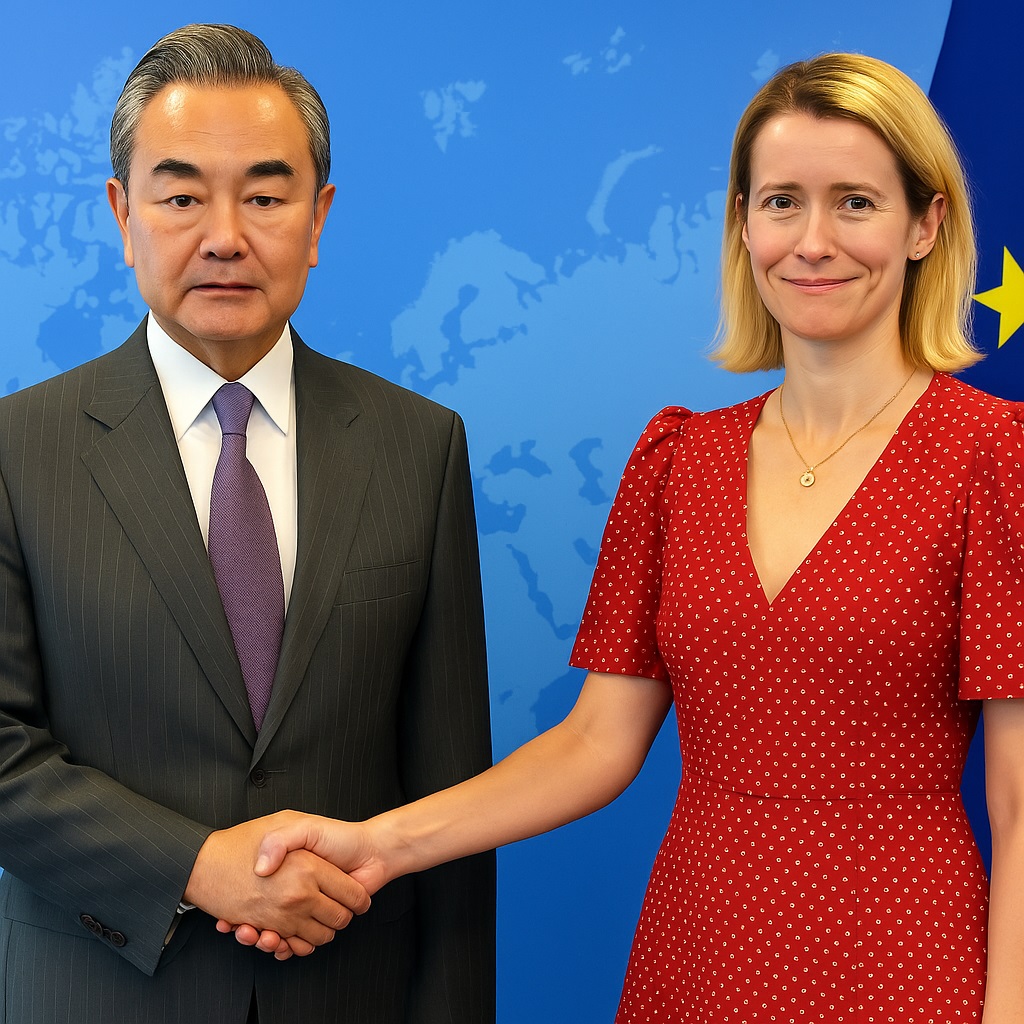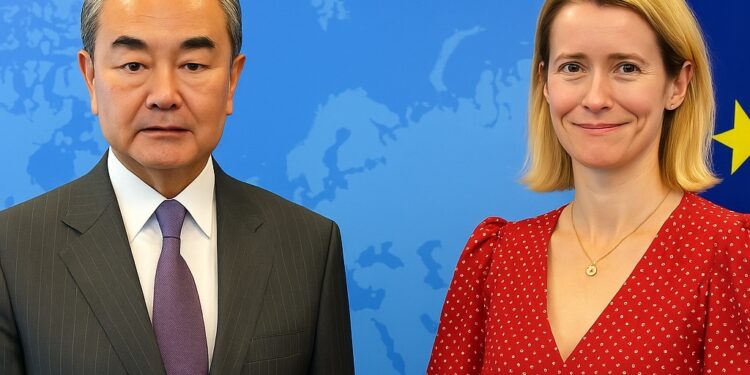EU Presses China on Rare Earths and Ukraine War Ahead of Crucial Summit

Brussels, July 2, 2025 — In a high-stakes diplomatic encounter, the European Union’s foreign policy chief Kaja Kallas met with Chinese Foreign Minister Wang Yi in Brussels to address mounting tensions over trade practices and geopolitical alignments. The meeting, held in anticipation of a major EU-China summit later this month, focused on two pressing issues: China’s restrictions on rare earth element exports and its alleged support for Russia’s war in Ukraine.
The talks come at a time when global supply chains are under strain and international alliances are being tested. Kallas’s message was clear and uncompromising: the EU expects China to end its “distortive practices” and take concrete steps to rebalance the economic relationship between the two powers.
Rare Earths: A Strategic Flashpoint
Rare earth elements—critical for manufacturing everything from smartphones to electric vehicles—have become a strategic bargaining chip in the ongoing trade tensions between China and the West. China currently supplies nearly 90% of the world’s rare earths, and recent export restrictions have alarmed European industries that rely heavily on these materials.
Kallas urged China to lift these curbs, warning that they pose “significant risks to European companies and endanger the reliability of global supply chains”. The EU has already begun exploring alternative sources, including mining projects in Africa and South America, but officials say these efforts will take time to yield results.
EU Trade Commissioner Maroš Šefčovič recently described the situation as “extremely disruptive” and likened it to the global chip shortage that crippled production lines during the COVID-19 pandemic. Automakers like Mercedes-Benz and BMW have reported supply disruptions, and fears are growing that the rare earth squeeze could trigger a broader industrial crisis.
Ukraine War: A Security Concern
Beyond trade, the EU is increasingly concerned about China’s indirect support for Russia’s military campaign in Ukraine. While Beijing insists it does not provide military aid to Moscow, European officials claim that Chinese companies are supplying key components for Russian drones and weapons systems.
Kallas did not mince words, calling on China to “immediately cease all material support that sustains Russia’s military industrial complex” and to back a “full and unconditional ceasefire” in Ukraine. She emphasized that continued support for Russia’s war effort poses a “serious threat to European security.”
The EU’s stance reflects growing unease over China’s geopolitical positioning. While Beijing has maintained a policy of strategic ambiguity, its economic and technological ties with Russia have raised eyebrows in Brussels and Washington alike.
Preparing for the Summit
Wednesday’s meeting was part of a broader diplomatic effort to lay the groundwork for the upcoming EU-China summit, scheduled for July 24–25 in Beijing. European Council President Antonio Costa and European Commission President Ursula von der Leyen are expected to meet with Chinese President Xi Jinping and Premier Li Qiang to discuss trade, security, and global governance.
Wang Yi, in his meeting with Costa earlier in the day, called for mutual respect and greater understanding between the two sides. He criticized “unilateralism and acts of bullying” that he said were undermining the international order—a veiled reference to Western sanctions and trade barriers.
Despite the tensions, both sides expressed a willingness to continue dialogue. EU officials hope the summit will yield tangible progress on trade reciprocity, market access, and cooperation on global challenges like climate change and nuclear non-proliferation.
Iran and the Nuclear Deal
In addition to trade and security, the Brussels talks touched on the situation in Iran. Both Kallas and Wang welcomed the recent de-escalation between Israel and Iran, but Kallas urged Tehran to restart negotiations on its nuclear program. She reiterated the EU’s readiness to facilitate talks and emphasized the importance of the Nuclear Non-Proliferation Treaty as a cornerstone of global security.
The EU, along with the UK, France, and Germany, remains committed to reviving the 2015 nuclear deal that the United States abandoned in 2018. Iran continues to insist that its nuclear program is peaceful, but Western powers remain skeptical.
A Complex Relationship
The EU-China relationship is a complex tapestry of cooperation and competition. On one hand, the two sides share deep economic ties, with China being the EU’s largest trading partner. On the other, they are increasingly at odds over human rights, technology, and global governance.
Recent EU moves to exclude Chinese firms from its medical procurement market and impose levies on e-commerce platforms like Temu and Shein have further strained relations. Beijing has accused the bloc of discriminatory treatment, while Brussels insists it is merely leveling the playing field.
The rare earth dispute is emblematic of this broader struggle. While China views its export controls as a legitimate response to Western tariffs and sanctions, the EU sees them as a threat to economic stability and industrial sovereignty.
Looking Ahead
As the July summit approaches, both sides face a delicate balancing act. For the EU, the challenge is to assert its strategic autonomy without alienating a key trading partner. For China, the goal is to maintain its global influence while avoiding further isolation.
Diplomats say the outcome of the summit could set the tone for EU-China relations for years to come. If progress is made on trade and security, it could pave the way for deeper cooperation. If not, the rift could widen, with ripple effects across the global economy.
In the meantime, European industries are bracing for continued uncertainty. The rare earth crunch, coupled with geopolitical tensions, has underscored the need for diversification and resilience. As Kallas put it, “We must ensure that our supply chains are not held hostage by distortive practices.”
Whether China will heed that call remains to be seen.














































